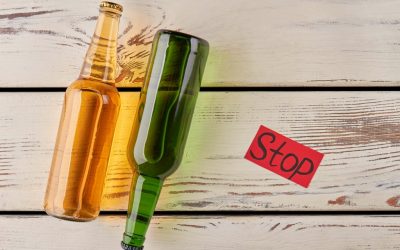Phrases like “No, thank you, I’m good,” or simply explaining your commitment to sobriety can ease the pressure. Together, support groups and community resources not only nurture a sober environment but also empower individuals to reclaim their lives from addiction. By actively engaging in these steps, you not only lay the groundwork for a robust support network but also enhance your chances for a successful, long-term recovery. SMART Recovery, which stands for Self-Management and Recovery Training, is a secular organization that focuses on science-informed practices to help people recover. Groups are led by a trained facilitator and focus on evidence-based tools to help you get and stay sober. Family therapy not only helps you heal damaged relationships but teaches you and your family members how to better support one another throughout your recovery.
The Role of Exercise in Improving Mental Health During Recovery
- A support system is essential for anyone on the recovery journey from substance use disorders.
- Soberly stands out for offering AI-powered guidance and science-based tools without requiring a paid plan.
- As important as it is to build a sober support network, it isnтt always something that comes easy for people new to recovery.
- “When you’re on Facebook, you’re surrounded by friends, family and coworkers,” Sober Grid co-founder Nick Krasucki told NBC News.
While 12-step meetings are the most common type of self-help group for people struggling with addiction, they donтt always fit the needs of everyone. Thankfully, recent years have shown substantial growth in alternative groups that can be just as effective at helping people build sober support networks and achieve lasting recovery. Sober Living Centers strengthens recovery through its community features. It connects users with family, friends, and professionals т such as house managers, case managers, recovery coaches, and counselors т creating a unified support network. This sense of connection plays a crucial role in maintaining long-term sobriety.
How sobriety gave me a second chance at fatherhood, relationships, and a life I no longer want to escape from.
Instead we have selected our top five favorite hashtags on social media. What I found is a great community of diverse people coming together to discuss sobriety. If you believe that being sober shouldnтt be the end of good times, create an account today and join the largest online sober app community. Loosid is proud to be the leading sober app, helping people like you stay sober, connect, and celebrate recovery since 2018. Recovery Elevator (@recoveryelevator) This account, tied to the popular podcast, focuses on community and connection. The posts are filled with recovery wisdom, inspirational quotes, and reminders that youтre never alone on your journey.
Alcoholics Anonymous
- The journaling tool, for example, supports cognitive behavioral therapy (CBT) by helping users track their thoughts and identify recurring patterns.
- The National Alliance for Recovery Residences (NARR) has unified the industry and progressed to become more professional.
- Contact us today at phone number to learn about our programs focused on building strong social connections.
This can include family members, friends, and professionals who understand the challenges of addiction and recovery. To build a sober network, connect with family, friends, and professionals who are supportive of your sobriety. Engage with groups or organizations dedicated to recovery, and participate in meetings or events where you can find like-minded individuals. A sober network is a lifeline that offers essential support to individuals braving the storm of addiction. Building a sober network involves rallying around like-minded friends, family, and mentors who can offer unwavering support. Itтs not so different from understanding a 30 year fixed mortgage rate chart т both require patience, commitment, and a long-term vision.
Proven Reliability and Accessibility

Some apps specialize in sobriety tracking, while others focus on peer support https://ecosoberhouse.com/ or guided exercises rooted in therapeutic practices. Take the time to read user reviews and test the appтs interface. Make sure itтs intuitive and fits seamlessly into your daily routine. A user-friendly app that meets your specific needs can make all the difference in supporting your recovery. By offering round-the-clock support, these apps provide timely coping strategies and motivation. They also enable users to seek help discreetly and anonymously, which is particularly valuable for those hesitant about in-person meetings or living in areas with limited resources.
Utilizing Mobile Apps for Continuous Support

Notably, 88% of members actively engage with their peers, creating a strong, supportive network. Nomo holds an impressive 4.7/5 rating on the App Store, backed by 12,600 reviews, and has facilitated the creation of over 3.59 million sobriety clocks. These numbers highlight its popularity and effectiveness in helping users stay on track with their recovery. The app combines tracking tools, community support, and drug addiction therapeutic features to provide a well-rounded recovery experience. The anonymity of social media interactions plays a crucial role in fostering a safe environment for individuals to open up about their struggles. This sense of privacy enables users to share their stories without fear of judgment, facilitating honest discussions about their challenges and victories.
Wellness Tools and Accessibility
From personal experience, I still have days where my sobriety is heavily challenged. One thing that I think really helped me start questioning my relationship with alcohol was following a lot of sober social media influencers on Instagram. Flooding my feed with the best sober influencers to follow was super motivating and encouraging to me on my journey. Approximately one in 11 workers in America has struggled with a substance use disorder (SUD) in the previous year. More and more, corporate professionals are hiring sober companions who can offer discreet, and sometimes, round-the-clock support. The aim is to provide confidential support and build psychological safety for people who donтt want to reveal that theyтre in recovery.
Apps can also offer articles, daily messages, and coping techniques that feel like they were made just for you. You can also connect with others in recovery, sharing experiences, and giving support. Sobriety is not only sober network about staying away from alcohol or substances.
Over time, the emotional resilience cultivated through a strong support system makes sustaining sobriety more manageable. Building such a network involves engaging with support groups like Alcoholics Anonymous (AA), Narcotics Anonymous (NA), SMART Recovery, or secular organizations. Participating in sober events, social activities, and community programs further strengthens these connections.
Check out platforms like Redditтs r/stopdrinking or sobriety-focused Facebook groups. After completing a formal program, you still need to maintain your sobriety and work on your recovery every day. We will help you set up any doctor or therapy appointments you may need or help you into a sober living residence.
Most of the time it is affiliated with a licensed treatment provider and supervised by a qualified management team. Typically, a level 4 residence is part of the continuum of care for an overseeing rehab institution. The goal is to prepare the person for the next phase of their recovery, whether that is another residence or independent living.
Engaging with supportive communities and following recovery influencers can cultivate a positive online environment. These connections offer motivation, shared experiences, and advice on navigating the intricacies of recovery. Lastly, taking regular digital detoxes can significantly aid in focusing on personal growth. It’s critical for individuals in recovery to approach social media with caution, establishing limits, and focusing on nurturing supportive relationships.
ьЕъЗМ ыъИ